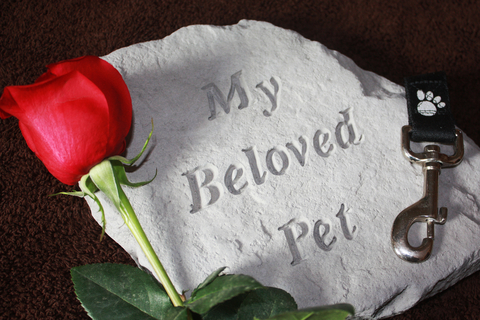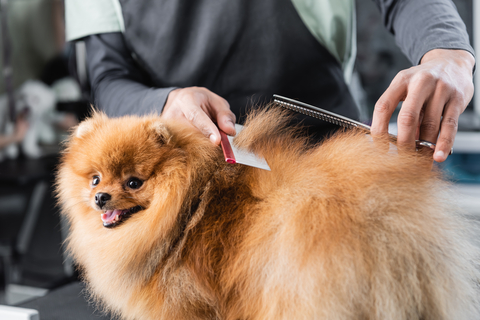As pet owners, we want our beloved pets to remain healthy and happy, to enjoy quality living until a ripe old age. However, unfortunately, our pets do not live as long as us, and at some point, if they have a good long life, we will have to be prepared to say goodbye.
Some pets pass on peacefully in their sleep while others unfortunately, have a terminal or debilitating ailment that compromises their quality of life. In such instances, owners are faced with the difficult decision to put their pet “to sleep”. Animalcare Veterinary Hospital endeavours to make the process of pet euthanasia peaceful and dignified. We are here to help you through this difficult process.
How do I know when it is time to say goodbye to a beloved pet?
If you notice your pet still experiencing significant pain, discomfort and a poor quality of life, despite attempts to alleviate this with veterinary or palliative care.
What are the signs that my pet is experiencing pain or discomfort?
Here are some signs that may indicate your pet is suffering or no longer enjoying a good quality of life:
- He is experiencing chronic pain that cannot be controlled with medication.
- He has frequent vomiting or diarrhoea that is causing dehydration and/or significant weight loss.
- He has stopped eating or will only eat if you force feed him.
- He is incontinent to the degree that he frequently soils himself.
- He has lost interest in all or most of his favourite activities, such as going for walks, playing with toys or other pets, eating treats or soliciting attention and petting from family members.
- He cannot stand on his own or falls down when trying to walk.
- He has chronic laboured breathing or coughing.
What are the options to handle your pet’s remains after he dies or is euthanized?
If your pet passes away at home or in the hospital, or is euthanized, we will be able to help you determine the best option for the disposal of the remains. There are a number of options, depending on what you want done with your pet’s remains and how much you are prepared to spend.
Home burial
Some people want to have their pet buried at home as a means of keeping them close, but many municipalities have laws that govern whether you are permitted to do so. Check with your parish council before burying your pet’s remains on your property.
When burying a pet at home, remove any non-biodegradable material such as a collar. You can use a blanket as a burial shroud or place your pet in a wooden or cardboard box or casket. The burial plot should be at least 3 feet deep. You may want to plant a tree or shrub over the plot to memorialize your pet, but make sure you are not burying the body in a place that is likely to erode or be dug up again.
Disposal by your municipality
Most municipalities in Jamaica will allow the disposal of small animals with your regular refuse pickup. It is wise to freeze the body in a garbage bag and place the remains in the bin on the day your refuse is due to be collected. Although this is not the nicest way to dispose of a beloved pet, it is probably the most commonly utilized procedure by residents in built up areas.
Disposal by your veterinarian
Most veterinary clinics, including Animalcare Veterinary Hospital, have contracts with sanitation contractors to collect and dispose of pet remains at a sanitary landfill. For many owners this is a satisfactory option to dispose of the remains of their pet, especially if cost is an issue. At our hospital, the pet remains are packaged and frozen and handed over to the contractor on specified days of the week. We go the extra mile to ensure that your pet’s remains are handled with dignity and respect while in our care.
Cremation
Cremation is the most popular choice for owners who want to memorialize their pet and provide a final resting place. The cost of pet cremation varies depending on the size of the animal, the type of cremation (communal or individual) and what you want done with the ashes. In individual cremation, the pet is cremated in a separate partition or tray in a cremation unit where other animals are also incinerated. You can choose whether you want the ashes returned to you. Communal cremation involves the incineration of many pets in the same cremation chamber. In communal cremation, you will not be able to receive your pet’s ashes; instead, they will be scattered by the crematory.
Your Animalcare veterinarian may be able to make arrangements on your behalf to have your pet’s remains cremated, or you can contact a pet crematory on your own.
Whatever method of disposal you choose, rest-assured that Animalcare Veterinary Hospital will ensure your beloved pet receives the utmost care and respect, and you receive the assistance you need, during this time of grief.


